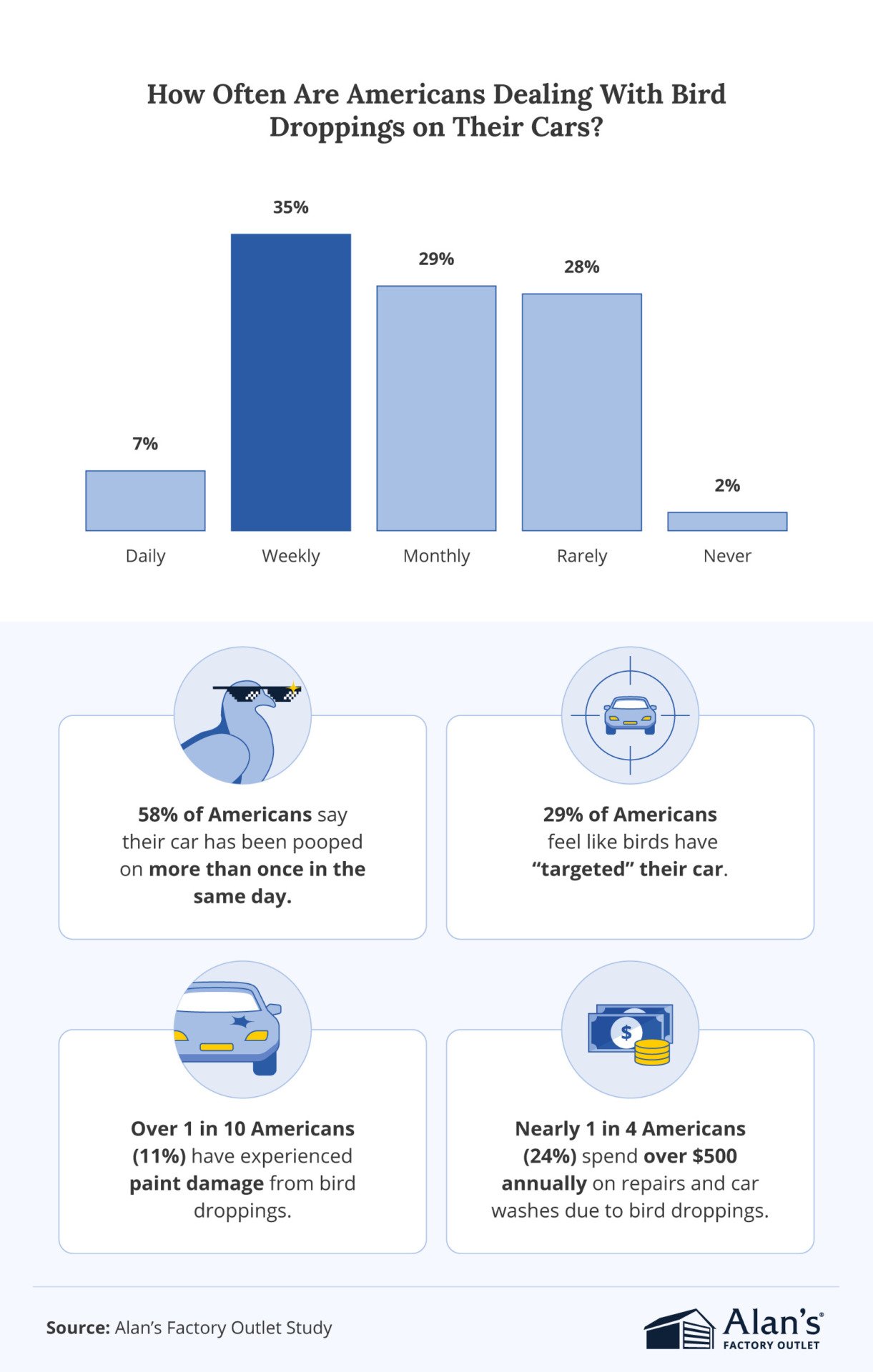Birds poop for very scientific, evolutionary reasons. That said, the beauty of science is difficult to appreciate when it materializes as unwanted poop splotches on the hood of your car. But there may be particular colors or driving habits that might make a car more attractive to birds looking for a nice place to poop.
Earlier this month, Virginia-based company Alan’s Factory Outlet published the “Bird Dropping Report,” which surveyed 1,000 U.S. drivers about their experience dealing with bird mess on their cars. The report combines survey responses with ornithology research, and its conclusions reveal a mix of expected yet surprising insights into the relationship between avian bowel activity and vehicle appearance.
Is your car a poop magnet?
Overall, brown, red, and black cars were most likely to be pooped on, whereas lighter colors, such as white or silver, tended to be spared from poop. As for brands, Ram trucks appeared to be most affected by bird splatter, followed by Jeep, Chevrolet, Nissan, and Dodge.
But the study also asked participants various questions about their general experience dealing with bird mess. For instance, 58% of respondents said that a bird pooped on their car more than once in the same day, with 11% reporting that it caused paint damage.
Around 30% argued that the birds had personally “targeted” their cars, particularly owners of Lexus (47%), Tesla (39%), and Dodge (35%) vehicles. For context, Dodge and Tesla rank 5th and 7th place, respectively, on the survey’s top 10 brands most likely to be pooped on (Lexus did not make the top ten).
An avian disruption
Another intriguing takeaway from the survey was that bird mess often interfered with drivers’ daily routines. For example, 6% of participants canceled or delayed plans to address splatter issues on their car, whereas 14% reported getting pooped on while getting in and out of their car.
Dealing with bird poop can become a financial burden, too. 57% admitted to paying for a car wash specifically to deal with bird poop, whereas 39% directly cited bird poop as the reason for going to the car wash multiple times a month.

As a result, the “costs add up quickly,” the report noted. About a quarter of respondents said they spent more than $500 per year on “car washes and repairs related to bird mess.” For Tesla and BMW owners, vehicle maintenance costs due to bird poop often exceeded $500, according to the report.
The fear of bird poop also drove changes in driver behavior. More than half of survey participants expressed concern that their current parking setup didn’t provide sufficient protection from bird poop, and 38% answered that they didn’t mind walking an extra block or two to avoid “poop zones.”
Precautionary measures, courtesy of science
The survey proposes several reasons as to why birds may be attracted to certain cars. Birds in urban locations merely like to roost under trees, power lines, or street signs, as they “provide safety and visibility for birds,” according to the report. Of course, that means that any cars parked under these prime locations are “in the line of fire,” it added.
But birds also see color differently from humans, due to an extra cone cell in their eyes that allows them to detect ultraviolet light. So it may be that brown, red, and black appear more attractive to birds—a tendency that has been explored by ornithologists before.
“If you’ve ever felt like your car is a magnet for bird droppings, you’re not wrong,” the report stated. “Science suggests there may be more behind the mess than bad luck.”

